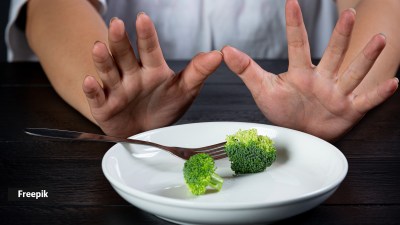Difficult to digest
The Bawejas' love food. So, Mrs Baweja always buys extra meat than what is required for dinner that day. The meat, naturally, is left over ...

The Bawejas8217; love food. So, Mrs Baweja always buys extra meat than what is required for dinner that day. The meat, naturally, is left over even after a hearty repast. Without giving it a second thought, Mrs Baweja puts the meat in the refrigerator for a rainy day.
The food is then reheated the next day and in many homes even the day after, and is often eaten two or three days after it was first cooked. Both Mr and Mrs Pikale have to travel over an hour everyday, to reach office. So, although a lot is said and heard about boiling and filtering water before drinking it, time does not permit them to do so.
The water they drink is municipal water straight from the tap. r Rahul, the Pals8217; school-going son, has had two loose motions in the morning. He does not wash his hands well and goes to school. In school, one tends to have a hand-to-hand contact with friends and, as is normal, Rahul indulges in fist fights as boys his age tend to get into.
There seems to be nothing extraordinary about the above situations and yet a minor slip can prove to be fatal. Barely have the rains set and gastroenteritis has already claimed a handful. And through the monsoons, the numbers are expected to tough the double digits. Here are a few tips to safeguard you and your family8217;s health: r Cooked food that is stored can contain the germs of gastroenteritis. What happens when it is stored even in a refrigerator is that the germs that may have been killed due to heating, can still release toxins over a period of time. When this refrigerated food is eaten, these toxins aggravate the intestines, resulting in gastroenteritis. Stick to freshly-cooked food during the rains.More often than not, the drainage system in our buildings are not up to the mark. And our fresh water pipes often run alongside sewage pipes. Which means that water that is supplied could be contaminated. It should, therefore, always be boiled and filtered.
Poor personal hygiene is often the cause of gastroenteritis and can lead to an epidemic, with the germs getting transferred from one dirty hand to another.
The typical symptoms of gastroenteritis are vomiting, fever, loose motions and giddiness. This is a reaction to the germs or the toxins if they are not neutralised present in the stomach. The body purges the system of this infection by way of loose motions and vomiting. But what happens during the process of washing the germs out, is that the body also throws out essential minerals and salts. A great amount of water is lost in the process. This leads to dehydration, which may sound mild but can prove to be deadly.
Hydrating the body should therefore be the first priority in such cases. And the surest way to do it, before medical assistance can be provided, is to give the patient the universally-acclaimed hydrating solution: A glass of water, a tea spoon of sugar and a pinch of salt. But the common mistake that people make is that they decide to wait and watch and let the motions subside on their own. But internationally-approved statistics prove that prevention is better than cure:
1. If a person has not more than three motions, the infection is mild.
2. Between three and six motions, the gastroenteritis is bad.
3. Anything above six motions means severe gastroenteritis.
Patients should seek medical assistance quickly, because this infection doesn8217;t take much time to turn into a severe attack.
Dr Anand Joshi is a Consultant in Gastroenteritis at Hinduja Hospital.
- 01
- 02
- 03
- 04
- 05






























